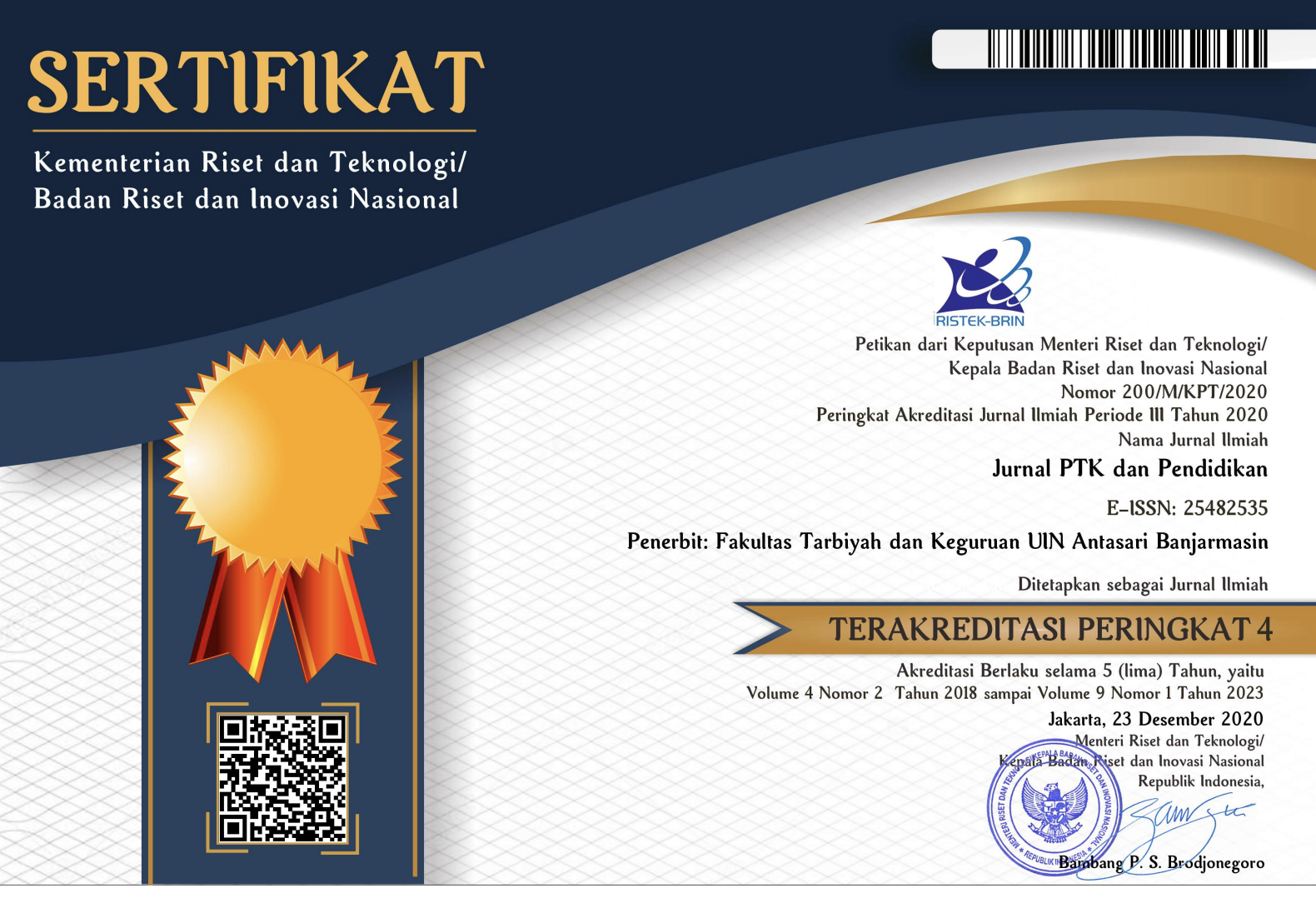The Urgency of Availability of Facilities, Time, and Parental Guidance for Students’ English Learning Achievement
DOI:
https://doi.org/10.18592/ptk.v8i2.5776Abstract
Abstract: The objective of this research was to determine the urgency of availability of facilities, time, and parental guidance at home for students' English learning achievement. For that, this research needs to explore the correlation between the things. Therefore, we used a correlational method with 118 English language education program students as participants or subjects for doing research. Students need the motivation from their parents, not only teachers at school. This argument is based on the consideration that children spend more time with their parents at home. Data collection was carried out using documentation and questionnaires. We used SPSS 25 to calculate and answer the hypotheses of each variable. Then used F statistics and multicorrelation to answer the hypotheses of all variables. Based on the results of the study, F change 0.001 <0.05 This means that the hypothesis is accepted and there is a significant relationship between study time learning facilities and parental guidance on student achievement. So that, it can be concluded that each unit increases learning indicators such as; learning facilities, study time and also parental support accompanied by changes in student achievement units in English.Keywords: Learning Facilities; Learning Time; Parental Guidance; Learning Achievement.References
Arizah, M. (2019). The Correlation Between Students’ English Achievement and Their . ETERNAL (English Teaching Journal), 2.
Bangun, D. (2008). Hubungan Persepsi Siswa Tentang Perhatian Orang tua, Kelengkapan Fasilitas Belajar, dan Penggunaan Waktu Belajar Di Rumah Dengan Prestasi Belajar Ekonomi. Jurnal Ekonomi dan Pendidikan, 5 (1).
Cohen, L. L. (2000). Research Method in Education. Fifth Edition. New York: Routledge Falmer.
Djamarah, S. (2012). Prestasi Belajar dan Kompetensi Guru. Surabaya: Usaha Nasional.
Fuller, C. (2009.). Sekolah Berawal dari Rumah: Cara cara Sederhana Membuat Pembelajaran Menyenangkan (Sari Badudu&VinaSitumorang, Ed.). Jakarta: sukaBuku.
Ghauri, P. &. (2005). Research Methods in Business Studie. Harlow: /Prentice Hall.
Hamalik, O. (2010). Psikologi Belajar dan Mengajar. Bandung: Sinar Baru Algesindo.
Kothari. (2014). Research Methodology Methods and Techniques. New Delhi: New Age International (P).
Middleton., F. (2019). An Introduction to Research Method. https://www.scribbr.com/methodology/reliability-vs-validity/ acces on December 16, 2021.
Mudjiono&Dimyati. (2009). Belajar dan Pembelajaran. Jakarta: RinekaCipta.
Neville, C. (2007). Effective Learning Service Time Management. : Bradfort University School of Management.
Sanjaya, W. (2011). Strategi Pembelajaran Berorientasi Standar Proses Pendidikan. Jakarta: KencanaPrenada Media.
Sardiman. (2011). Interaksi dan Motivasi Belajar Mengajar. Jakarta: RajaGrafindoPersada.
Seifert, K. R. (2009). Educational Psychology. Second Edition.
Slameto. (2010). Belajar dan Faktor-Faktor yang Mempengaruhi. Jakarta: RinekaCipta.
Sugiyono. (2012). Metode Penelitian Pendidikan. Bandung: Alfabeta.
Sugiyono. (Statistika Untuk Penelitian). 2007. Bandung: Alfabeta.
Suryabrata, S. (2011). Psikologi Pendidikan. Jakarta: Raja GrafindoPersada.
Syah, M. (2012). Psikologi Belajar . Jakrta: Raja GrafindoPersada.
Syah, M. (2013). Psikologi Pendidikan. Bandung: RemajaRosdaKarya.
Yusuf, S. A. (2011). Landasan bimbingan dan Konseling. Bandung: RemajaRosdakarya.
Downloads
Published
How to Cite
Issue
Section
License
- The right to publication of all journal material published on the Jurnal PTK dan Pendidikan website is held by the editorial board with the author's knowledge (moral rights remain the property of the author).
- The formal legal provisions for access to digital articles of this electronic journal are subject to the terms of the Creative Commons CC BY 4.0 DEED Attribution International (CC BY) license. This license enables reusers to distribute, remix, adapt, and build upon the material in any medium or format, so long as attribution is given to the creator. The license allows for commercial use.
- Printed and electronic published manuscripts are open access for educational, research and library purposes. In addition to these objectives, the editorial board shall not be liable for violations of copyright law.






